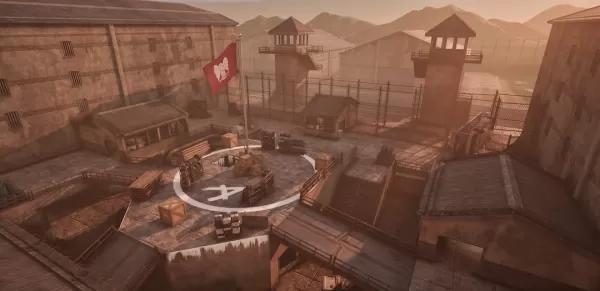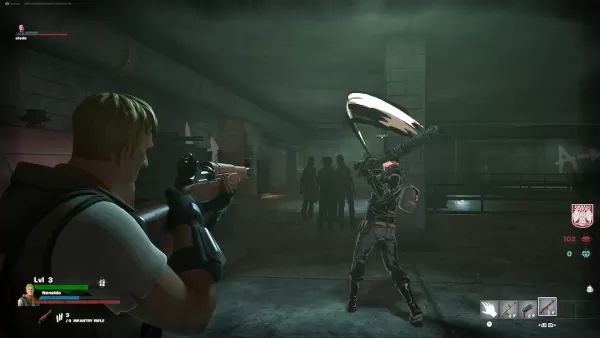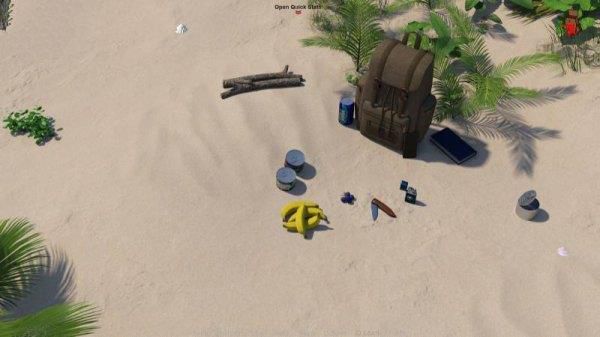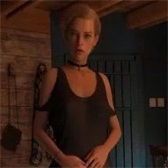The gaming industry has faced significant challenges in recent years, with layoffs, studio closures, and dwindling funding becoming all too common. Enrique Fuentes, CEO and co-founder of Teravision Games, felt the impact firsthand when his team released Killer Klowns From Outer Space, an asymmetrical horror game inspired by the 80s film. Despite positive reception, including a 7/10 rating from IGN for being "as silly and entertaining as the movie that spawned it," and trailers amassing hundreds of thousands of views, the team struggled post-launch.
Fuentes explains, "As you know, 2024 was a pretty tough year for the whole industry. So it was a little bit slow for us to close our next project." Despite collaborations with major companies like Disney, Nickelodeon, and Xbox, finding a follow-up project proved challenging. In a bold move, Teravision turned to Fortnite, releasing three games using Unreal Engine for Fortnite (UEFN) within a year. Their latest, Courtyard King, launched today, leverages the official The Walking Dead content pack for UEFN.

Courtyard King, developed in partnership with Skybound, the company co-founded by The Walking Dead creator Robert Kirkman, is a King of the Hill-style multiplayer PvPvE game set in the iconic prison from the series. Players battle both each other and NPC zombies for territorial control. All The Walking Dead elements in Courtyard King utilize official UEFN assets, including character models of Rick Grimes, Negan, and Daryl Dixon. Teravision also collaborated with Skybound's writers to develop the game's story and dialogue.
Fuentes highlights the shift to UEFN, saying, "Instead of a multi-year project like Killer Clowns From Outer Space, these are projects that we could put together in weeks or months." He notes the unexpected opportunity UEFN presented, particularly with working with a company like Skybound. "But I mean, UGC, it’s one of the biggest things in gaming right now."
User-generated content (UGC) is revolutionizing the gaming industry, with platforms like Fortnite leading the charge. While UGC typically refers to content created by players, professional studios like Teravision are now using these tools. Fortnite's Unreal Engine 5-based tools were particularly appealing to Teravision's experienced developers.
Fuentes explains, "It made sense because we come from an engineering background and it was a platform where we could experiment in and assume some of the risk." This approach allowed Teravision to create games like Havoc Hotel, a roguelike shooter where players fight through hotel levels, earning currency to buy more powerful weapons. The success of Havoc Hotel and its sequels, especially Havoc Hotel 3, which became one of Fortnite's most popular games, validated this new direction.

Martin Rodriguez, Teravision's game designer, notes that transitioning to UEFN was seamless due to their prior experience with Unreal Engine. "For us, it just removes some of the work that we would’ve done otherwise and allows us to focus on just making better games and explore different new creative ideas," Rodriguez says.
The game design team faced unique challenges with UEFN, as these games differ significantly from traditional ones. Teravision's creative director, LD Zambrano, points out, "A traditional experience we have had designing other [non-UEFN] games is where players relate through objectives that entice cooperation and competition, right?" In contrast, UEFN games often thrive on less structured, more playful interactions.
Zambrano likens UEFN games to schoolyard play, saying, "I have found that there is this way of approaching each other that brings me back to recess, which is you meet somebody and make up some sort of game that might not make sense, but still you’re engaging and creating friendships." This concept is evident in Courtyard King, which is an infinite game without a definitive winner. Players can join or leave matches at any time, even switching teams, which adds elements of betrayal and dynamic gameplay reminiscent of The Walking Dead.

Fuentes sees a bright future for game developers in this model. "We can actually assume the risk as an indie developer in [UEFN]. Because last year, we couldn’t even think about starting a three-year project. We could do something in a few weeks with a smaller team and that completely changes the paradigm for a new developer." He believes this approach is sustainable for studios like Teravision, which employs 80 people. "It’s something that if you have the right ideas, the right creativity around it, if you understand the market well enough and you have the right thinking, execution becomes possible and it doesn’t take years, it actually takes weeks, maybe months. I think this is a dream come true for indie developers."







![NULL [Remastered]](https://imgs.39man.com/uploads/71/1719651062667fcaf6c483b.png)








